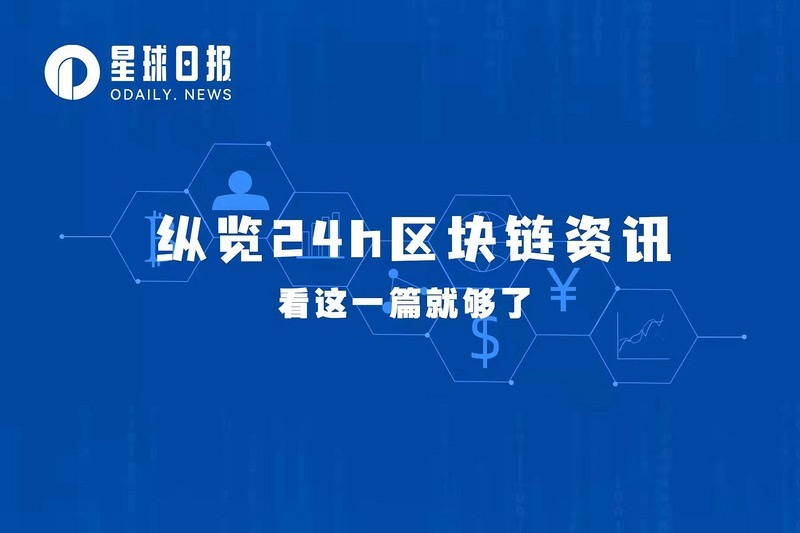
headlines
Stanford University researchers launched "reversible transaction" standards ERC-20R, ERC-721R to solve increasingly serious security problems
Odaily News Stanford University researcher kaili.eth tweeted today that he has collaborated with several other researchers to design two new Ethereum token standards ERC-20R and ERC-721R.
Beosin: dydx's SDK uses malicious third-party components, which may lead to leakage of user credentials
Odaily News According to the public opinion monitoring of the Beosin EagleEye platform, Maciej Mensfeld found the server abnormal file http://api.circle-cdn.com/setup.py, and found a malicious code sample in a sample library by comparing the code. Uniform https://dwz.win/azUF
In-depth analysis by the Beosin security team found that the attacker obtained sensitive information of the system by executing the following code on the local machine: then used the socket library function gethostname to extract DNS analysis, and at the same time obtain the basic information of the current user and perform data encapsulation. Then use the curl command to send the assembled information to the server of api.circle-cdn.com in file format, in txt format named with random numbers, after uploading and cleaning work, no temporary files generated are left.
Apple charges up to 30% on NFT transactions made through iOS apps
Magic Eden co-founder and CTO Sidney Zhang said they never tried to offer buy and sell functionality on their app because of Apple’s commission issues. (The Information)
Industry news
Changpeng Zhao: Mandatory destruction of 1.2% of each LUNC transaction is a centralized decision, Binance will allow users to choose
Odaily News Binance CEO Changpeng Zhao tweeted that forcing the destruction of 1.2% for each LUNC transaction is a centralized decision that will allow users to choose, and he said that "giant whales will not trade at a tax rate of 1.2% ".
CoinFlex creditors overwhelmingly back restructuring plan in early vote
Odaily News In the early stages of voting on CoinFlex's restructuring proposal, CoinFlex's creditors overwhelmingly supported the cryptocurrency exchange's restructuring plan. According to Snapshot, after nearly five hours of voting today, representing more than 99% of creditors agreed to the proposed restructuring plan. The vote is expected to close on Tuesday.
Veritaseum Capital sues Coinbase for $350 million over patent infringement
Compute North CFO: Dispute with Generate Capital leads to funding chain break
According to previous reports, Bitcoin mining company Compute North filed for Chapter 11 bankruptcy protection and raised $385 million in February this year. Additionally, Compute North was sued by NBTC for failing to return a $1.4 million deposit. (The Block)
Project News
Acala's first phase of voting on resuming operations has started, and the current support rate is 100%
Odaily News Layer 1 blockchain Tezos activates an upgrade called Kathmandu, adding new scaling capabilities. According to the Tezos team, the Kathmandu upgrade went live on the Tezos mainnet at 4:30pm EST on Friday at block height 2,736,129.
Tezos main network has activated Kathmandu upgrade, adding new expansion capabilities
Odaily News Layer 1 blockchain Tezos activates an upgrade called Kathmandu, adding new scaling capabilities. According to the Tezos team, the Kathmandu upgrade went live on the Tezos mainnet at 4:30pm EST on Friday at block height 2,736,129.
It is reported that this is the 11th upgrade of Tezos since its inception in 2018, aiming at potential scalability improvements. The Kathmandu upgrade was proposed in July by Tezos contributors and development companies Nomadic Labs, Marigold, TriliTech, Oxhead Alpha, Tarides, DaiLambda, and Functori & Tweag. In addition, contributors say that the Kathmandu upgrade introduces a permanent testnet for experimentation new function. (The Block)
PandaDAO Community Refund and Dissolution Proposal Passed
Odaily News Snapshot information shows that the PandaDAO community refund and dissolution proposal has been approved. This vote received 66.33% of votes in favor and 33.67% of votes against.
According to the proposal, the 8 core members of PandaDAO and the community leader will destroy 50 million PANDA and remove it from the Uniswap liquidity pool.
All PEOPLE owned by the PandaDAO vault will be transferred to the PeopleDAO vault, and all other assets will be exchanged for about 1450-1600 ETH, which will be used as refund funds. One week after the refund process, the PandaDAO Discord server and all official social accounts will be logged off and deleted.
Odaily News According to the latest data from Dune Analytics, the total number of Ethereum domain name service ENS registrations exceeded 2.5 million, currently 2,503,223, including 402,543 primary domain name registrations and 565,494 participating independent addresses.
Investment and Financing
Snoop Dogg's Son Creates Web3 Fund WTTB, Plans to Raise $50 Million
Odaily News Snoop Dogg’s son, Cordell Broadus, announced a partnership with Singaporean investment institution Golden Equator Group. The two parties have established a new Web3 fund, Welcome To The Block (WTTB).
DREP Launches $5 Million Ecological Fund to Develop GameFi 2.0 Program
Odaily News The public chain project DREP launched a USD 5 million ecological fund, which will be used for the development of NFT-related products and launch the GameFi 2.0 plan to support the development of Metaverse, NFT, and GameFi-related products.
TwitterScan Closes $4.56M Seed Funding Round, Led by Redpoint Ventures
It is reported that TwitterScan, founded by MetaScan Labs, will use the funds to accelerate the development of its DID ecosystem and lightweight social platform, and cooperate with CyberConnect and Link3 to develop .NFT DID social infrastructure and build the Web3 domain name system.
Kapital DAO completed a new round of financing, Polygon Ventures, Solana Foundation and others participated in the investment
Odaily News Web3 game asset management decentralized autonomous organization Kapital DAO announced the completion of a new round of financing, the specific amount has not been disclosed yet, Polygon Ventures, Algorand Foundation, HBAR Foundation, Solana Foundation, NEAR, Yield Guild Games (YGG), Samsung NEXT, GSR, Wintermute Ventures, Keyrock, Portofino, etc. participated in the investment.